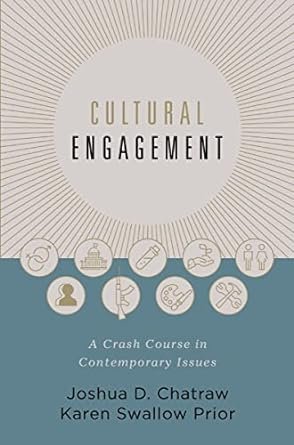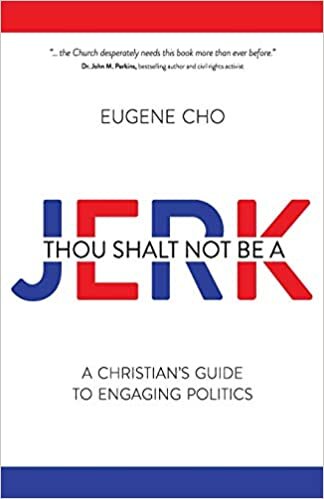
POLITICS AND JESUS
We’ve been getting this question a lot:
What are some helpful resources for Christians to help us navigate this political climate biblically?
*IMPORTANT DISCLAIMER*
In his letter to the Philippians, the Apostle Paul writes that, "We are citizens of heaven, where the Lord Jesus Christ lives. And we are eagerly awaiting for him to return as our Savior" (Philippians 3:20 NLT). As Christians, it's important to remember that our primary citizenship belongs to a heavenly kingdom, not an earthly one. But as we follow Jesus into the world, embodying and expressing Good News, it is also important that we engage the political process Biblically, theologically and faithfully.
WestGate Church does not endorse political parties nor candidates. Our aim is to help you navigate tense conversations around the socio-political landscape with love, gentleness, humility and respect. Along these lines, we've gathered some resources below to help you examine your own convictions and engage in thoughtful dialogue with others.
While politics are important and often one of the primary mediums for working toward the common good, may we never forget Paul's reminder earlier in Philippians 3: "We are eagerly awaiting for him to return as Savior." Ultimately, no single policy or politician is the answer. No system of government or structural reform will bring about, in full, the flourishing we desire. Jesus and only Jesus is the answer. May He rule and reign in our hearts, minds, and lives; and may we, as His people, embody and express that rule and reign in and to the world with grace, love, and peace.
– WestGate Church Leadership
Helpful Resources
WestGate Church
Practical Approaches to Navigating Tense Conversations Around Politics (and other polarizing issues)
DESCRIPTION:
We live in a time of fractured discourse, made worse by not only polarized social media, but also in light of the election and the myriad of deeply-emotionally-charged issues facing the world right now. So how do we, as Christians, talk to one another? Especially when people - even people in your Christian friend group - are divided dramatically about these issues? Is there a way to talk TO each other and not PAST each other? Jay Kim, Liz Ditty and David Tieche stop by to talk (civilly) about this important topic.
Arguing About Politics Sermon
by Tim Keller
WHY THIS IS IMPORTANT:
In this sermon, Keller examines the famous passage in Scripture where the Pharisees pose a controversial question to Jesus when they ask him if they should pay taxes. Jesus responds with a revolutionary answer: He refuses political complacency, political simplicity, and political primacy. Jesus then models a revolutionary idea, showing his followers that the way to gain power is to give it away.
Additional Reflections on the Early Church
by Timothy Keller
The Early Church Christian social project was a unique kind of human community that defies categories. It had at least five elements:
Multi-racial and multi-ethnic
Highly committed to caring for the poor and marginalized
Non-retaliatory, marked by a commitment to forgiveness
Strongly and practically against abortion and infanticide
Revolutionary regarding the ethics of sex
Each of the five elements was there because Christians sought to submit to biblical authority. They are all commanded. They are just as category-defying and both offensive and attractive today. The first two views (ethnic diversity and caring for the poor) sound “liberal,” and the last two (abortion and sexual ethics) sound “conservative.” But the third element, of course, sounds like no particular party. Churches today are under enormous pressure to jettison the first two or the last two, but to not keep them all. Yet to give up any of them would make Christianity the handmaid of a particular political program and undermine a missionary encounter.
Books
Cultural Engagement: A Crash Course in Contemporary Issues
by Karen Swallow Prior and Josh Chatraw
WHY THIS IS IMPORTANT:
How should Christians approach important contemporary issues like war, race, creation care, gender, and politics? Christians in every culture are confronted with social trends and moral questions that can be difficult to navigate. But, the Bible often doesn't speak directly to such issues. Even when it does, it can be confusing to know how best to apply the biblical teaching. In Cultural Engagement: A Crash Course in Contemporary Issues authors Joshua D. Chatraw and Karen Swallow Prior first offer a broadly accessible framework for cultural engagement and then explore specific hot topics in current Western culture. Featuring contributions from over forty top thinkers, proponents of various views on the specific topics present their approaches in their own words, providing readers an opportunity to fairly consider options. Unique in how it addresses both big-picture questions about cultural engagement and pressing current issues, Cultural Engagement provides a thorough and broad introduction useful for students, professors, pastors, college ministers, and any believer wanting to more effectively exercise their faith in the public square.
Compassion (&) Conviction: The AND Campaign's Guide to Faithful Civic Engagement
by Justin Giboney, Michael Wear, Chris Butler, Barbara Williams-Skinner
WHY THIS IS IMPORTANT:
Have you ever felt too progressive for conservatives, but too conservative for progressives? Too often, political questions are framed in impossible ways for the faithful Christian: we're forced to choose between social justice and biblical values, between supporting women and opposing abortion. As a result, it's easy for Christians to grow disillusioned with civic engagement or fall back into tribal extremes. This state of affairs has damaged Christian public witness and divided the church. The authors of this book represent the AND Campaign, which exists to educate and organize Christians for faithful civic and cultural engagement. They insist that not only are we called to love our neighbors through the political process but also that doing so requires us to transcend the binary way the debates are usually framed. In simple, understandable language, they lay out the biblical case for political engagement and help Christians navigate the complex world of politics with integrity, from political messaging and the politics of race to protests, advocacy, and more. The book includes a study guide for classroom use and group discussion. When we understand our civic engagement as a way to obey Christ's call to love our neighbor, we see that it is possible to engage the political process with both love and truth―compassion and conviction.
Thou Shalt Not Be a Jerk: A Christian's Guide to Engaging Politics
by Eugene Cho
WHY THIS IS IMPORTANT:
Cho encourages readers to remember that hope arrived—not in a politician, system, or great nation—but in the person of Jesus Christ. With determination and heart, Cho urges readers to stop vilifying those they disagree with—especially the vulnerable—and asks Christians to follow Jesus and reflect His teachings. In this book that integrates the pastoral, prophetic, practical, and personal, readers will be inspired to stay engaged, have integrity, listen to the hurting, and vote their convictions.
Uncommon Decency
by Richard Mouw
WHY THIS IS IMPORTANT:
How can we communicate with people who disagree with us on the issues that matter most? What does it look like for Christians to model civil conversations filled with wisdom, humility and compassion in such a divisive culture? Dr. Mouw, professor of faith and public life at Fuller Theological Seminary, invites us to recover the lost virtue of civility as the key Christian ethic in treating one another with respect without compromising our Christian beliefs.
If you haven’t registered to vote and would like to, here is information on how to register in California.
California offers voter registration online, by mail, and in person. Online voter registration is available at RegisterToVote.ca.gov.
You can also request and complete a paper voter registration form and mail or hand deliver it to your county elections official to register to vote.










